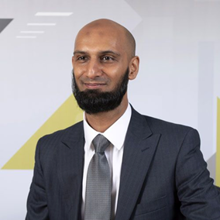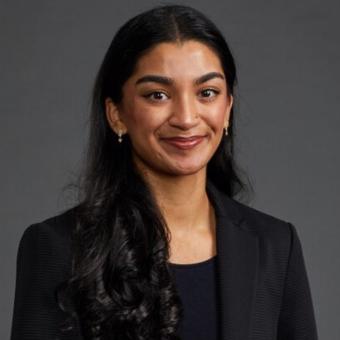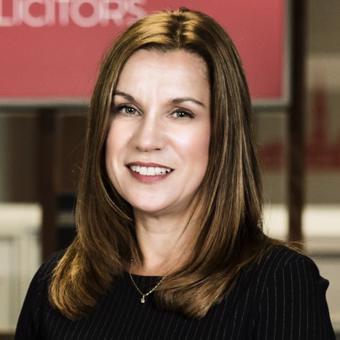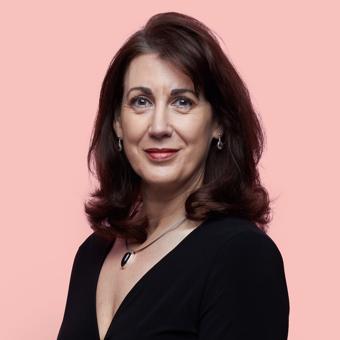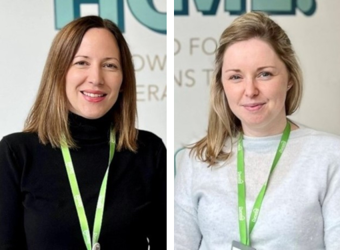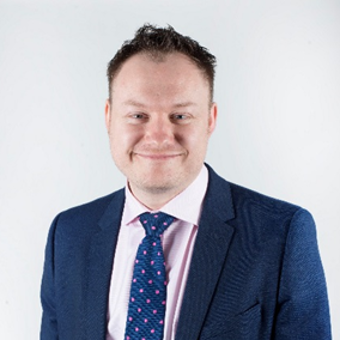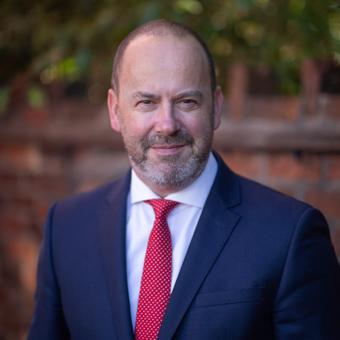Siddique Patel, who recently joined gunnercooke as a Partner, is one of the country’s foremost authorities in the field of Islamic family law. He talks to The Brief about a career built upon understanding the complex interplay between religious and secular law.
Family law is one of the most complex and fluid fields of legal practice. More than a decade after the Radmacher v Granatino judgment, for example, pre-nuptial agreements are still not, strictly speaking, legally binding in England and Wales, although they are widely employed.
Things arguably become an order of magnitude more complex, however, when the civil family law that prevails in England and Wales intersects with a parallel religious code. Further issues are then added in cases where people who have undertaken religious wedding ceremonies discover, upon the breakdown of their relationships, that in the eyes of the law they were never married in the first place.
This is the field in which Siddique Patel, who last autumn joined the fast-growing challenger law firm gunnercooke as a Partner, has carved out a niche and become a leading authority.
Discovering family law
Patel, whose family own a business in the petrol retail trade, was born and bred in the West Yorkshire town of Dewsbury. His interest in the legal profession was piqued at the age of 16 when his uncle, who is still involved in the family business, showed him a letter from a solicitor and the accompanying invoice.
“He said, ‘This is what you need to do – look at what my solicitor is charging me!’” Patel laughs.
Coupled with a growing affinity for the law, this entrepreneurial element provided the motivation to study law at “A” Level and he went on to complete his LLB at the University of East London. However, upon his return to Dewsbury, he was disillusioned and lacking in motivation to embark on a legal career.
This began to change when he discovered the existence of Shariah councils. “There I was in my early 20s, having just learned about the English legal system and then finding out you’ve got Shariah councils operating in the country,” he recalls.
He approached Shaikh Yakub Qasmi, the founder of Dewsbury Sharee Council, and was invited to observe its proceedings and make any suggestions he believed would be helpful.
“What I quickly learned was this,” he says. “The only reason for the existence of the Shariah councils in this country, and it’s a very important reason, is to help Muslim women who are stuck in religious marriages when the marriage isn’t successful and there’s no reason for that marriage to subsist but, because of unfortunate cultural – not religious – reasons, when the women requested Talaq, (Islamic divorce) the husbands would refuse to grant it.”
Interplay between religious and civil law
As he spent time with the Sharee Council in a pro-bono capacity, he discovered that, although technically the religious and civil elements of Islamic marriage, and divorce, are separate, in practice there is constant interplay and intersection between the two.
To illustrate this, he refers to a recent case on which he acted, which involved allegations of domestic abuse. The wife in this case argued that her husband’s failure to grant Islamic divorce at the time she had requested it constituted coercive and controlling behaviour: “That’s a direct link into our English family law and procedure.”
He also made sure that English civil law was not undermined in any way by the operation and actions of the Dewsbury Sharee Council.
Patel, who ceased acting as legal adviser to the Sharee Council in Dewsbury in 2013, took his LPC at Northumbria University in 2005-06 before joining Sarah Khan Bashir MBE’s Shire Solicitors (now known as SKB Law) as a paralegal. He then went on to secure a training contract with HPA Solicitors in Blackburn.
Up to this point, although he had built up a considerable body of knowledge from working with the Sharee Council, he had yet to practise family law in a professional capacity. This changed in 2013 when he joined a niche personal injury firm, Stradbrokes, in Leeds to establish a matrimonial department from scratch.
Two years later he was recruited by Kamrans Solicitors, a well-regarded Yorkshire criminal practice, to set up and run its family department.
The value of education
As well as acting for clients, Patel has throughout his career sought to educate his professional peers, the agencies that come into contact with separating couples, and the Islamic community, on the intersection between religious and civil matrimonial law. He has delivered seminars in mosques, presented his own radio show, trained organisations including West Yorkshire Police, and delivered sessions on Islamic divorce for other solicitors.
It was at one of these sessions, delivered on behalf of the family lawyers’ membership body Resolution, that he met Peter Morris, who at the time was working for Irwin Mitchell but went on to head the family law team at Shoosmiths’ Leeds office. This led to his next career move, in 2018.
“We kept in touch on LinkedIn, and it was an absolute privilege to be recruited and to work for Shoosmiths,” he continues. “It was an absolute privilege to work with Peter.
"He is one of the best family lawyers I have ever met. He really expanded my knowledge and taught me to apply my niche knowledge in Islamic family law in the world of international and high net worth clients."
Then, in 2020, he was approached to join the Leeds office of gunnercooke. He says the firm’s innovative business model, which has an emphasis on agreeing fixed fees up-front, enables him to deliver his service in the way he wants, allowing him to make himself available to clients without worrying about how they will be able to pay for his time.
“Just yesterday I was able to agree a charging structure with a client of mine that I never would have been able to agree in any other traditional law firm setting,” he explains. The autonomy given to partners at gunnercooke, combined with the strength of the support services it provides, also helps Patel, who is married with two young children, to balance his work commitments with family life.
Register Our Marriage
One of the biggest continuing challenges in the practice of Islamic family law relates to cases where, in a legal sense, there is no marriage to dissolved. To address this, Patel has been actively involved in, and acted as Deputy Director of, the Register Our Marriage campaign founded by Aina Khan OBE in 2014.
In many cases that Patel comes across, couples have undertaken a religious wedding ceremony in the UK but not the civil ceremony which is also required in order for the marriage to be legally recognised in Britain. Because there is no marriage in a legal sense, there is no recourse to the courts for a financial settlement, which is particularly problematic for homemakers with no financial resources of their own.
“If there is no legal marriage then there is nothing for the vulnerable party, which is most likely to be the wife,” Patel says. “She is stuck. All those years of marriage and then, in the worst cases we have seen, the wives are left destitute and homeless, because they have no legal right to claim against the husband’s property.
“The only route open to them is to consider costly and risk-heavy civil litigation under the Trusts of Land and Trustees Appointment Act 1996. It all merges with the rights of cohabitees, because that’s what they are, but the law doesn’t afford cohabitees the same protections as married couples.”
The Register our Marriage Campaign was established both to raise awareness of the problem and to lobby the government to change the law so that marriages of all faiths are recognised in law. At present only Anglican, Quaker and Jewish religious marriages are automatically recognised as legal without any additional registration requirements.
Impact of the pandemic
The campaign was gaining significant traction pre-Covid, Patel says, although its activities have been curtailed somewhat by the pandemic. While putting activities like this on hold, ironically, Covid-19 has also increased the need for them.
I have never gone through such a busy period in my career, and it’s not good for the families of this country.
Patel says that “being in lockdown, staying in the company of partners who may be abusive, has only exacerbated problems within marriages, unfortunately."
The mass media only tend to pay attention to family law when cases arise involving the kinds of sums in which the outcome is merely a question of how astronomically wealthy each divorcing partner will end up by comparison with the other. Arguably, however, the cases dealt with by Patel and those like him are at least as complex and interesting as the headline grabbing celebrity divorces, and the consequences for the parties involved, and society as a whole, are often far more significant.
For Patel, certainly, practising family law is about far more than numbers in a bank account. He explains, “Shaikh Yakub Qasmi taught me that ‘the best people are those who are useful to others’ and so I want to use the law to help my clients, and helping families come through the most distressing period of their lives provides me with the greatest satisfaction.
I also believe that by helping people to move on with their lives I am fulfilling a huge religious obligation, so it gives me a good balance, I think.
